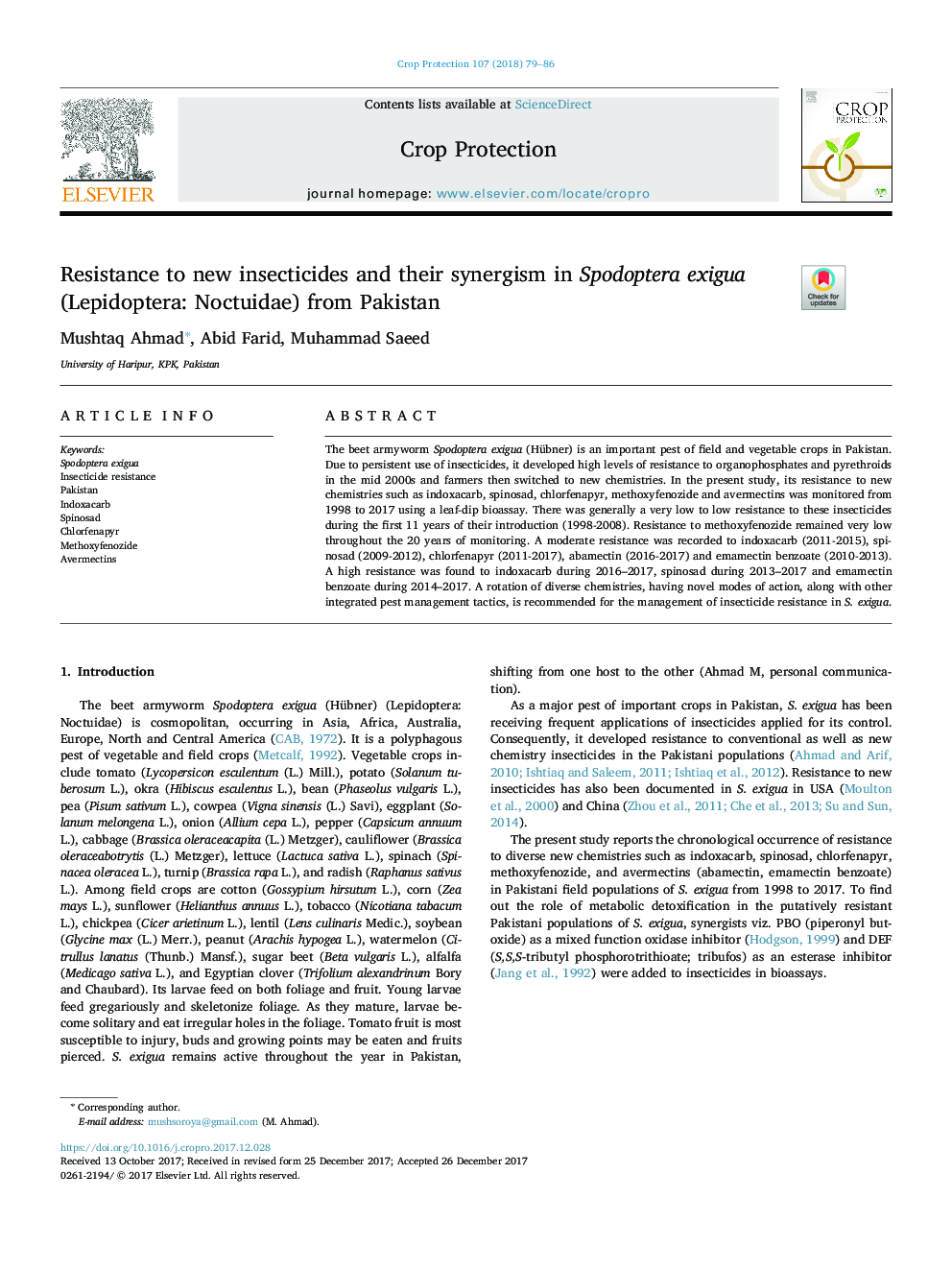| Article ID | Journal | Published Year | Pages | File Type |
|---|---|---|---|---|
| 8878218 | Crop Protection | 2018 | 8 Pages |
Abstract
The beet armyworm Spodoptera exigua (Hübner) is an important pest of field and vegetable crops in Pakistan. Due to persistent use of insecticides, it developed high levels of resistance to organophosphates and pyrethroids in the mid 2000s and farmers then switched to new chemistries. In the present study, its resistance to new chemistries such as indoxacarb, spinosad, chlorfenapyr, methoxyfenozide and avermectins was monitored from 1998 to 2017 using a leaf-dip bioassay. There was generally a very low to low resistance to these insecticides during the first 11 years of their introduction (1998-2008). Resistance to methoxyfenozide remained very low throughout the 20 years of monitoring. A moderate resistance was recorded to indoxacarb (2011-2015), spinosad (2009-2012), chlorfenapyr (2011-2017), abamectin (2016-2017) and emamectin benzoate (2010-2013). A high resistance was found to indoxacarb during 2016-2017, spinosad during 2013-2017 and emamectin benzoate during 2014-2017. A rotation of diverse chemistries, having novel modes of action, along with other integrated pest management tactics, is recommended for the management of insecticide resistance in S. exigua.
Keywords
Related Topics
Life Sciences
Agricultural and Biological Sciences
Agronomy and Crop Science
Authors
Mushtaq Ahmad, Abid Farid, Muhammad Saeed,
